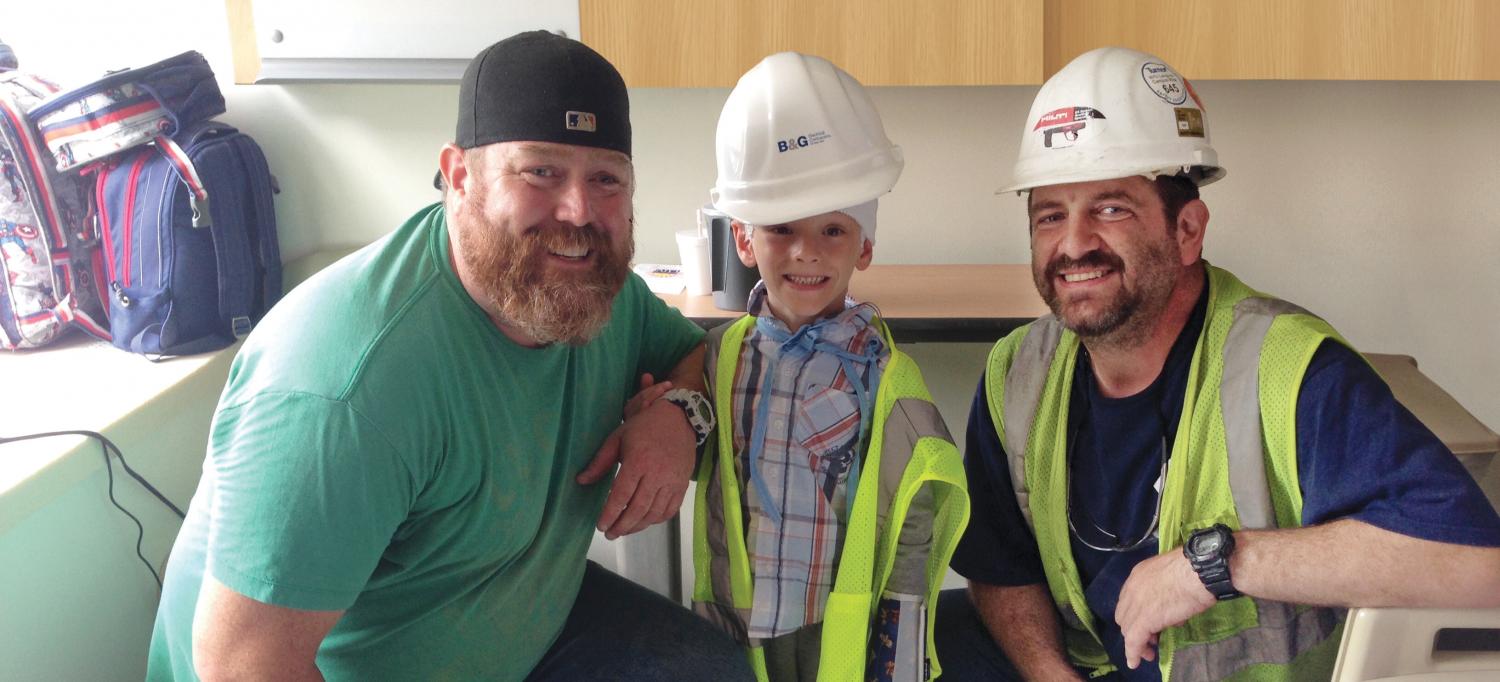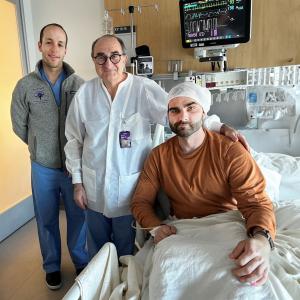
Photo: Julie Rogers
At the age of six, Joshua Rogers has had more medical procedures than most people endure in a lifetime. Born at 23 weeks of gestation and weighing only one pound, Joshua, whose twin sister died hours after birth, was given little chance of survival. If he lived, doctors told his parents, Julie and Daniel, he was likely to have severe physical and cognitive disabilities. But he defied the odds. “He’s just a champion,” says his mom. Smart, energetic, and irrepressibly cheerful, Joshua recently started kindergarten, though he’s been plagued by serious ailments—from lung problems to epilepsy—resulting from his premature birth. In July, when his seizures seemed to be growing worse, his parents took him for neurological tests at NYU Langone Medical Center.
“We’ve been in a half-dozen hospitals,” explains Julie, “so Joshua has gotten used to the standard routine.” This time, however, he got several surprises. One was a matter of chance: Not far from the window of his room in Tisch Hospital, two electricians were laying conduit on the roof of an adjacent building. For Joshua, who’s fascinated by all things mechanical, it was like having a front-row seat at a rock concert. He waved, and the workmen waved back. As the day passed, the exchange was repeated frequently. Seeing the boy in his white mesh cap, studded with electrodes to record his brain waves, one of the workmen, Doug DiMeo, thought of his own young son. “I’d love to get that kid a gift,” he said to his partner. Allan Jackier knew just the thing. During their lunch hour the next day, they picked up a brand-new hard hat and safety vest at their foreman’s office. Then they went searching for their new friend.
The workmen explained their mission to a security guard, who relayed their request to visit the boy to the nurse manager. When the nurse manager informed Joshua’s mother that the workmen were out in the hallway, Julie exclaimed, “Joshua! Those construction workers came to see you. Isn’t that amazing?” The boy’s response said it all: “Wow!”
Once inside Joshua’s room, DiMeo and Jackier fitted Joshua with the helmet and vest. “Maybe you can be our apprentice someday,” DiMeo told him. “Or our boss.” Joshua thanked them as Julie choked back tears. “I couldn’t believe they would take so much trouble to show kindness to a little boy,” she recalls. After Julie snapped a cellphone photo, the men went back to work, and Joshua—now dressed like his buddies—went back to waving. “He did a lot more for our morale than we could have done for his,” says Jackier.
But that wasn’t the only thrill Joshua experienced during his four-day stay. There was the video-game player in his room. The food (especially the pancakes), which he liked better than any hospital fare he’d ever eaten. The clown. The horticulture therapist. And when Joshua needed an IV, the music therapist distracted him with his favorite song, “God Bless America.”
“Joshua felt like he was at camp,” says Julie. Just before discharge, she received the welcome news that her son’s seizures were now under control and his prognosis was a good one. “Seeing your child light up in a hospital? I didn’t think that was possible.”

